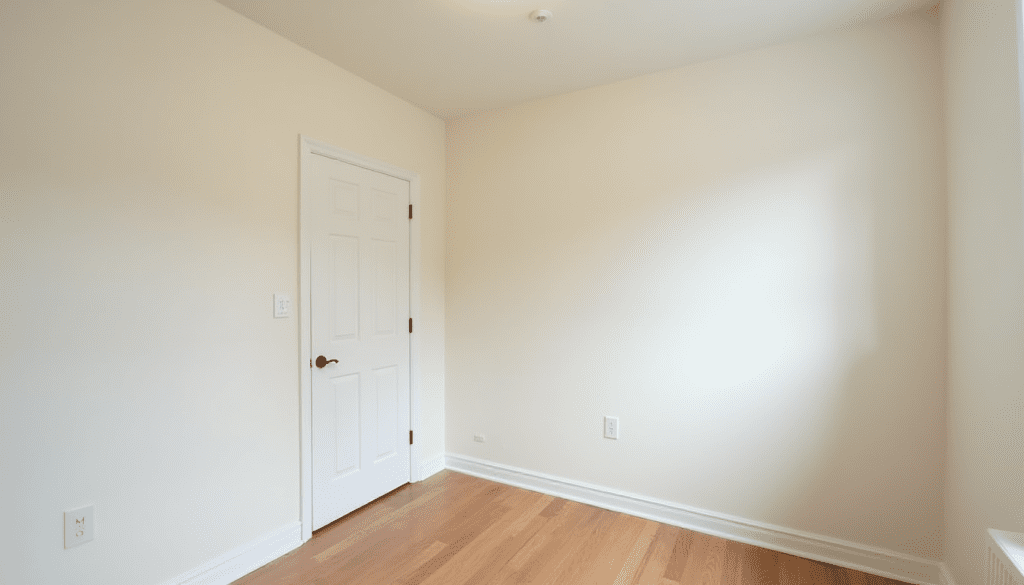In Essex County, New Jersey, both landlords and tenants often face the stress of what happens when rent goes unpaid or serious lease violations occur. One of the most urgent legal tools in this scenario is the _“3-day notice to pay or quit”_ (also often referred to more broadly as a “3-day notice to quit”), and it’s critical to understand when it applies, how it works, and what rights each party has. This article will walk you through everything you need to know — the legal basis, landlord-tenant rights, timing, and best practices — so you can act confidently and avoid costly mistakes.
What is a “3-Day Notice to Pay or Quit”?
A “3-day notice to pay or quit” is a formal demand from a landlord to a tenant: either pay the overdue rent (or correct the violation) within three days, or vacate the rental unit. In the context of New Jersey law, this kind of short-period notice is used in situations of particularly serious lease breaches. It’s one of several notice types under the state’s eviction statutes, but it signals a fast-moving process. For example, one legal commentary states that when a tenant commits disorderly conduct, causes damage to the premises, or engages in illegal activity, a “3-day notice to quit” is required before filing suit. :contentReference[oaicite:0]{index=0}
In simple terms: when a tenant fails to pay rent, often a direct eviction process can begin without the 3-day written demand for non-payment (in many cases). But when the issue involves serious violations, the landlord must serve a formal, written notice giving three days before proceeding. :contentReference[oaicite:1]{index=1}
It’s worth noting: though we often say “3-day notice to pay or quit,” strictly speaking under NJ law the phrase may vary in form (such as “notice to quit and demand for possession”), depending on the specific statute and cause. The key takeaway: this is a short, urgent notice when serious conditions apply.
Why the “3-day” period?
The “three-day” period is set in statute for certain grounds. Under N.J.S.A. 2A:18 61.2 (the New Jersey statute governing removal of residential tenants), subsection (a) provides that for actions alleging disorderly conduct, injury to premises, or certain listed grounds, the landlord must provide “three days’ notice prior to the institution of the action for possession.” :contentReference[oaicite:3]{index=3}
In practice, the short period reflects the seriousness of the issue: a tenant who is engaging in illegal activity, severely damaging property, or otherwise creating an urgent problem cannot be given the more generous notice periods afforded for lesser breaches.
Legal Basis in New Jersey
The legal framework for eviction notices in New Jersey consists primarily of the Anti-Eviction Act and related statutes governing landlord-tenant matters. Among the key statutes: N.J.S.A. 2A:18 61.1 outlines the grounds for removal of tenants, while § 2A:18-61.2 specifies the required notice periods for different grounds. :contentReference[oaicite:5]{index=5}
For example, § 2A:18-61.2 states:
“For an action alleging disorderly conduct under subsection b. of section 2… three days’ notice prior to the institution of the action for possession…”
:contentReference[oaicite:6]{index=6}
What this means: if a landlord in Essex County wants to evict a tenant for certain serious causes (disorderly conduct, willful damage to premises, illegal activity, etc.), the landlord must first serve the tenant written notice with a three-day quit period before filing an eviction case. The statute sets out different notice periods depending on the eviction grounds (3 days, 1 month, 3 months, etc.). :contentReference[oaicite:7]{index=7}
It’s also essential to understand that for typical non-payment of rent, the law allows the landlord to file immediately if rent is unpaid and no habit of accepting late rent exists — though practical service of notice may still be required under court rules. :contentReference[oaicite:8]{index=8}
Service, Forms & Requirements
Proper service of the notice to quit (or pay or quit) is crucial. Without correct service, the court may refuse jurisdiction and dismiss the eviction complaint. Legal guides emphasize that mis-service of a Notice to Quit is a common reason for dismissal. :contentReference[oaicite:9]{index=9}
Additionally, the notice typically must include: the tenant’s name and address, the nature of the breach or non-payment, a clear demand for possession (or payment), and the timeframe (e.g., three days) by which the tenant must respond or vacate. Some forms are available (e.g., pro-forms for NJ landlords) that specify when a 3-day notice applies. :contentReference[oaicite:10]{index=10}
When Is the 3-Day Notice Applicable?
In Essex County—and throughout New Jersey—the 3-day notice applies in select situations. It’s important for both landlords and tenants to know when it’s appropriate, and when other notice periods apply.
Non-Payment of Rent
While many people assume a 3-day notice is used for non-payment of rent, the statute and practice reflect a slightly different rule. Under NJ law, if the tenant fails to pay rent when due and the landlord has not habitually accepted late payments, the landlord may proceed with eviction without a prior “notice to quit” in certain cases. :contentReference[oaicite:11]{index=11}
Nevertheless, many landlords still serve a demand for payment or a short notice to avoid disputes, though strictly speaking the 3-day notice as mandated under § 2A:18-61.2(a) is triggered more for some other causes. It’s always wise to check the lease and ensure your service complies with statute.
Tenant Misconduct, Property Damage, Illegal Activity
This is where the classic “3-day notice to quit” requirement comes into play. When a tenant engages in disorderly conduct, causes substantial damage, or engages in illegal activity, the landlord must give three days’ written notice prior to filing the eviction action. This notice effectively terminates the tenancy unless the tenant vacates or corrects the conduct (if allowed). :contentReference[oaicite:12]{index=12}
What It’s Not Used For (In Many Cases)
For other lease violations (for example, repeated rule violations, minor lease breaches, habitual late payment), New Jersey law often requires longer notice periods — such as one month or more — rather than the three-day form. For example, § 2A:18-61.2(b) allows one-month notice for lease violations or habitual late payments. :contentReference[oaicite:13]{index=13}
In other words, just because one sees “3-day notice” doesn’t mean every eviction triggers it. The cause drives the notice period.
Specifics for Landlords in Essex County
If you’re a landlord operating in Essex County, NJ, you should pay attention to a few practical aspects in addition to knowing the statute:
Service Requirements and Documentation
When serving a notice: make sure to document the date of service, method (personal delivery, certified mail, posting if applicable), and retain proof (e.g., receipt, photo of posting). The law emphasises that improper notice or insufficient documentation frequently undermines an eviction. :contentReference[oaicite:14]{index=14}
Make sure your notice clearly states the reason (e.g., “non-payment of rent for month of X”, or “tenant caused damage to property on date Y”), the demand (pay or quit), and the deadline (three days) after which you will file the complaint. Also, follow the form guidance available (for example on ezLandlordForms) to ensure you are using the right type of notice. :contentReference[oaicite:15]{index=15}
Filing an Eviction Complaint After the Notice Expires
After the three days have passed and the tenant has not complied or vacated, the landlord may file a complaint for possession in the Special Civil Part of the Superior Court (in Essex County). The landlord should be ready to submit the verified complaint, summons, proof of service of notice, and any rent ledger or documentation of the tenant’s default. Some resources outline that once a judgment for possession is entered, the tenant still has three business days to pay rent and costs to avoid lock-out. :contentReference[oaicite:16]{index=16}
Local Venue/County Court Considerations
Because this is Essex County, it is important to ensure that the case is filed in the correct county venue and that local court procedural rules are followed (including deadlines, hearing schedules, and service requirements). While the statutes are statewide, practice details may vary slightly by county, so building familiarity with the local Special Civil Part docket is wise.
Tenant Rights & Defenses After Receiving the Notice
When tenants in Essex County, NJ, receive a 3-day notice to pay or quit, it can feel overwhelming. However, the law provides certain protections and options. Tenants have rights under New Jersey’s Anti-Eviction Act and related landlord-tenant statutes, ensuring they cannot be arbitrarily removed without due process. Understanding these rights can make a substantial difference in how you respond to a notice.
Paying Rent or Curing the Breach
In many non-payment cases, a tenant can still prevent eviction by paying the rent owed before a judgment for possession is entered. Once the landlord files in court, if the tenant tenders all rent due plus allowable court costs, the eviction can be halted. This is often referred to as “redeeming” the tenancy. The New Jersey Courts themselves emphasize that no tenant can be physically evicted without a formal court order and warrant of removal. ([njcourts.gov](https://www.njcourts.gov/self-help/landlord-tenant?utm_source=chatgpt.com))
If the notice alleges misconduct or property damage, tenants can dispute the claim by presenting evidence—such as photographs, witness statements, or maintenance logs—to show the accusation is false or exaggerated. The key is to document and respond promptly.
Challenging Improper Service or Defective Notice
Improper service of a 3-day notice is a frequent defense. For example, if the landlord fails to deliver the notice in a legally acceptable way (like certified mail, personal service, or valid posting), the tenant can argue that the eviction process was not properly started. Courts often dismiss eviction complaints for such errors. ([vljnj.org](https://www.vljnj.org/pro-bono-blog/facing-eviction-in-new-jersey?utm_source=chatgpt.com))
Likewise, a defective notice—missing key information like tenant names, addresses, specific reasons, or the statutory reference—may also invalidate the process. Tenants should review every line of the notice carefully and consult with a legal aid provider if there are questions about its accuracy.
Habitability or Retaliation Defenses
New Jersey law also protects tenants from retaliatory evictions. If a landlord issues a 3-day notice shortly after a tenant reports unsafe conditions or requests repairs, courts may view the notice as retaliatory and dismiss the case. ([ruoffcampus.rutgers.edu](https://ruoffcampus.rutgers.edu/sites/default/files/Tenants-Rights-in-New-Jersey.pdf?utm_source=chatgpt.com))
Additionally, if the rental unit is uninhabitable—say, due to lack of heat, water, or sanitation—tenants may raise a “warranty of habitability” defense. This means that if the landlord failed to maintain the property, rent may be legally withheld until repairs are made. However, it’s essential to do this properly and with documentation, not merely stop paying rent without notice.
Timeline & Next Steps: From Notice to Court
After a 3-day notice is served, the clock starts ticking. Both parties should understand what happens next to avoid missteps that could lead to unnecessary conflict or financial loss.
Step 1: Notice Period and Tenant Response
Once served, the tenant has three days to either comply (pay rent, stop the misconduct, vacate) or face legal action. This three-day window is calculated as full calendar days, not business days. Landlords must wait for the entire notice period to expire before filing in court.
Step 2: Filing the Eviction Complaint
If the tenant does not comply, the landlord may file an eviction complaint in the Special Civil Part, Landlord-Tenant Section, of the Superior Court in Essex County. The complaint will state the grounds, include proof of service of the notice, and request a judgment for possession. ([lawdistrict.com](https://www.lawdistrict.com/articles/eviction-process-new-jersey?utm_source=chatgpt.com))
Upon filing, the court issues a summons setting a hearing date. Both parties are notified, usually within 10–30 days depending on docket backlog. Landlords should bring rent ledgers, lease copies, and evidence of service; tenants should bring receipts, photos, or correspondence relevant to their defense.
Step 3: Court Hearing and Judgment for Possession
During the hearing, both landlord and tenant present their sides. If the judge rules in favor of the landlord, a “judgment for possession” is entered. This does not immediately remove the tenant; it merely authorizes the next procedural step—a warrant of removal.
Step 4: Warrant of Removal and Lockout
After judgment, the landlord requests a warrant of removal from the court clerk. This gives the tenant three business days to vacate voluntarily before the sheriff or court officer may enforce the lockout. No landlord may perform self-help (changing locks or shutting off utilities); doing so is illegal under NJ law and can expose landlords to damages. ([njcourts.gov](https://www.njcourts.gov/self-help/landlord-tenant?utm_source=chatgpt.com))
Best Practices for Landlords and Tenants in Essex County
Whether you’re a landlord or tenant, handling a 3-day notice professionally and lawfully helps protect your rights and minimize losses.
For Landlords
- Always provide written notice in compliance with statute 2A:18-61.2, including date, reason, and deadline.
- Use certified mail and retain proof of delivery to avoid disputes.
- Never engage in self-help evictions such as lockouts or utility shut-offs.
- Document all tenant communications and property conditions with photos and logs.
- Consult property management professionals or attorneys when unsure.
Experienced property management firms like RentShield Property Management can guide landlords through compliance steps to prevent avoidable delays or dismissals in court. Internal linking example: NJ Eviction Process Guide
For Tenants
- Do not ignore the notice—communicate with the landlord or seek assistance immediately.
- Gather proof of payments or conditions (texts, receipts, photos) that support your position.
- Reach out to local legal aid or advocacy programs in Essex County if you cannot afford counsel. ([vljnj.org](https://www.vljnj.org/pro-bono-blog/facing-eviction-in-new-jersey?utm_source=chatgpt.com))
- Attend all court hearings; failure to appear almost always results in default judgment.
- Pay rent or remedy the issue before the court date whenever possible to avoid eviction.
Local Considerations: Essex County Specifics
Essex County follows New Jersey’s statewide landlord-tenant statutes, but procedural details—such as hearing schedules, filing fees, and sheriff availability—can differ from other counties. The Essex County Special Civil Part is located in Newark, and its docket often experiences heavy volume, so early preparation and documentation are critical.
Tenants in Essex County can seek free or low-cost legal representation through Volunteer Lawyers for Justice (VLJ), Essex-Newark Legal Services, or community organizations focused on housing stability. These groups help tenants respond correctly to notices, file answers, and sometimes negotiate settlements to remain housed. ([vljnj.org](https://www.vljnj.org/pro-bono-blog/facing-eviction-in-new-jersey?utm_source=chatgpt.com))
Landlords should note that certain municipalities within Essex County, like Newark, East Orange, and Irvington, may have rent control ordinances or registration requirements that affect eviction procedures. Checking with the local housing department before serving notices helps ensure compliance.
Sample Notice (What It Should Look Like)
When drafting a 3-day notice to pay or quit in Essex County, NJ, precision and compliance with state law are critical. While templates exist, each notice should be customized to the specific situation. A properly written notice protects landlords from dismissal in court and helps tenants clearly understand their obligations.
Key Elements to Include
- Names and Addresses: Full legal names of all tenants and the property’s complete address.
- Reason for Notice: Clear description of the violation, such as non-payment of rent, property damage, or disorderly conduct.
- Amount Owed or Nature of Violation: Specify the exact rent due (if applicable) or factual summary of the misconduct.
- Legal Basis: Cite the relevant statute, for example, N.J.S.A. 2A:18-61.2.
- Deadline: State explicitly that the tenant has “three (3) days” to pay, remedy the issue, or vacate the property.
- Landlord Information: Include the landlord’s name, address, and signature.
- Date and Service Method: Note when and how the notice was delivered (certified mail, personal delivery, etc.).
It’s also best to use simple, professional language—no threats or emotional tone. A neutral, factual notice is more credible in court.
Where to Get Templates or Forms
Landlords can use standardized templates like the New Jersey 3-Day Notice to Quit form available on ezLandlordForms. Always review templates with a legal professional or property manager to ensure accuracy and compliance. Using a verified form can help prevent missing statutory requirements that may invalidate the eviction.
FAQ – Quick Answers to Tenant & Landlord Questions
What does a 3-day notice to pay or quit mean in Essex County, NJ?
It means a tenant has three days to either pay overdue rent, stop a violation, or vacate the rental unit. If no action is taken, the landlord may begin eviction proceedings through the Essex County Superior Court.
Can a landlord evict a tenant immediately after the 3-day notice expires?
No. The landlord must first file an eviction complaint with the court. Only after a judge issues a judgment for possession and the sheriff serves a warrant of removal can the tenant legally be removed. ([njcourts.gov](https://www.njcourts.gov/self-help/landlord-tenant?utm_source=chatgpt.com))
What must be included in a 3-day notice in New Jersey?
It should include the tenant’s name, address, the specific reason for eviction, the amount due (if any), a reference to N.J.S.A. 2A:18-61.2, the landlord’s contact information, and a clear three-day deadline.
Can a tenant stop an eviction after receiving the notice?
Yes. In many cases, paying the owed rent or correcting the violation before court filing will stop the eviction. Even after filing, tenants may still prevent removal by paying all rent and court costs before judgment. ([lawdistrict.com](https://www.lawdistrict.com/articles/eviction-process-new-jersey?utm_source=chatgpt.com))
What are tenant defenses against a 3-day notice?
Common defenses include improper notice service, inaccurate information, retaliation, discrimination, or habitability issues such as unsafe living conditions. Tenants can present these defenses during the court hearing with supporting evidence. ([ruoffcampus.rutgers.edu](https://ruoffcampus.rutgers.edu/sites/default/files/Tenants-Rights-in-New-Jersey.pdf?utm_source=chatgpt.com))
How long does the entire eviction process take after a 3-day notice?
Depending on court schedules, it can take between three to six weeks from the notice to the actual lockout, provided all filings are correct and no continuances occur.
Does the 3-day notice apply to all lease violations?
No. It mainly applies to serious misconduct like disorderly conduct, property damage, or illegal activity. Other lease violations typically require a 30-day or longer notice. ([innago.com](https://innago.com/new-jersey-eviction-process/?utm_source=chatgpt.com))
When to Seek Legal Help
If you are unsure about your rights or obligations under a 3-day notice, it’s time to speak with a legal professional. Landlord-tenant laws in New Jersey are detailed and can be complex, especially in Essex County’s high-volume housing courts. Both parties can benefit from professional guidance.
For Tenants
Contact a qualified landlord-tenant attorney or legal aid organization such as Volunteer Lawyers for Justice or Essex-Newark Legal Services. They can review your notice, verify compliance, and represent you in court if necessary. Many provide free consultations for low-income tenants.
For Landlords
Property owners should seek advice from experienced property management firms or legal counsel to ensure all documentation complies with N.J.S.A. 2A:18-61.2. RentShield Property Management provides detailed guidance and can help draft notices correctly to avoid dismissal due to technical errors. Internal reference: Property Management Services in NJ
Summary and Key Takeaways
The 3-day notice to pay or quit is one of the fastest-moving notices in New Jersey’s landlord-tenant framework. In Essex County, both landlords and tenants must handle it with urgency and accuracy. Here are the most important points to remember:
- It applies mainly to serious lease breaches like property damage or illegal activity.
- For non-payment of rent, landlords often can file without a 3-day notice—but should still serve a demand to protect their case.
- Proper service of notice is essential; courts often dismiss cases for improper notice.
- Tenants have the right to respond, pay, or contest the notice in court.
- No eviction can occur without a court-issued warrant of removal enforced by the sheriff.
- Legal assistance can prevent costly mistakes for both parties.
By understanding how the 3-day notice works within Essex County’s eviction process, landlords can protect their investments, and tenants can safeguard their housing rights. Always act promptly, document everything, and when in doubt, seek legal guidance.
Need Help With a 3-Day Notice in Essex County?
If you’re dealing with a 3-day notice to pay or quit—whether as a landlord or tenant—our team at RentShield Property Management can help guide you through the process. Contact us today for expert support in compliance, documentation, and communication to ensure your case proceeds smoothly.
Disclaimer
This article is provided for informational purposes only and does not constitute legal advice. Laws and regulations may change, and individual circumstances vary. For specific guidance regarding eviction or landlord-tenant disputes in New Jersey, consult a qualified attorney or licensed property management professional.






